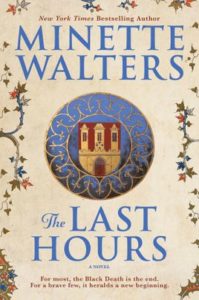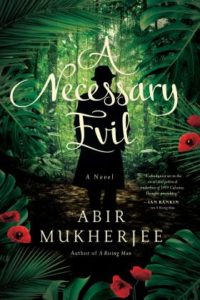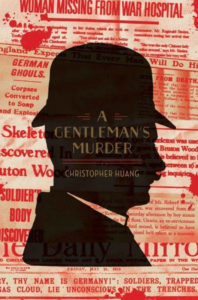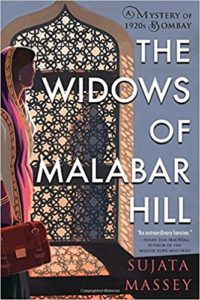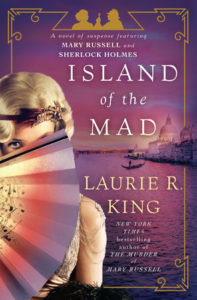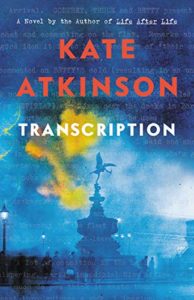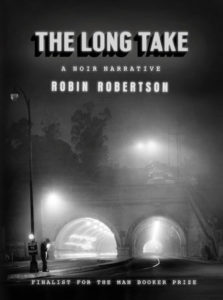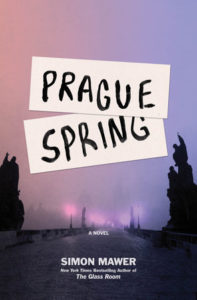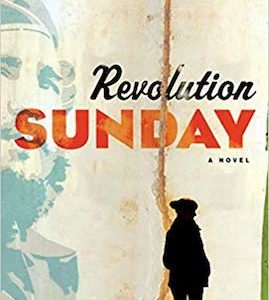History is a crime novelist’s best friend—it’s said that time heals all wounds, yet the scars are just underneath the surface, ready to resurface in crime novels either set in the past or divided between a past crime and a present-day legacy. History can also help solve the plausibility problem of high body counts in countries with low murder rates, and anecdotally, we’ve noticed that nearly every Scandinavian thriller has some kind of buried body or past crime as the second of the “two seemingly unrelated murders that shockingly end up connected to each other” formula of crime fiction (and just to clarify, this is a site dedicated to a genre dedicated to rules, so we’re not knocking the idea of a formula).
Beyond plausibility, some time periods have a natural resonance for crime fiction. When we decided to assemble a list of the essential historical fiction releases of 2018, we didn’t expect quite so many of the following titles to be set in the 1920s, although it makes sense when one considers WWI as the catalyst for the rise of the traditional mystery. Add in the mystery world’s mandate to explore the narratives of those people and nations left out of previous eras of crime fiction, and you have potential for a vast body of historical fiction. The 1940s and 50s, as the height of the pulp fiction era, and (coincidentally?) the height of American disconnect between appearance and behavior, also make several appearances on this list, yet there’s only one medieval mystery and (shockingly) no Victorian-era works on here at all, in what can only be described as an oversight, and we promise the Victorian community we’ll do better next year. And, without further ado, here’s a list of 10 essential historical crime and mystery releases from 2018, arranged, obviously, in chronological order.
Minette Walters, The Last Hours (MIRA)
Setting: 1348
Minette Walters was inspired to write this murder mystery set during the plague after learning of the presence of plague pits (mass graves dating back to the 14th century holding the remnants of those who succumbed to the Black Plague) on her estate. In this richly detailed story of suspense and murder, a noblewoman married to a brute bands together with her serfs to keep the disease outside their gates, even as the small community is beset by crime as well as plague.
Abir Mukherjee, A Necessary Evil (Pegasus)
Setting: 1920s
Mukherjee continues his chronicles of interwar India with an investigation of a prince’s murder, taking his opium-addicted protagonist and his cheerful assisting detective on a road trip to a semi-independent principality where traitors are executed by elephant. As in his previous historical mystery, Mukherjee excels at presenting the complex landscape of a post-war India not far from independence.
Christopher Huang, A Gentleman’s Murder (Inkshares)
Setting: 1920s
The first novel from Singapore-born, Montreal-based architect Christopher Huang is a locked room traditional mystery that does justice to its inspirations, even as it aids in the genre’s continuing evolution. Set in the 1920s, A Gentleman’s Murder takes place predominantly in a London gentleman’s club for soldiers only, patronized by haunted aristocrats trying to forget the horrors of the first world war. When a murder at the club is tied to a mysterious wrong from the past, amateur sleuth and club member Lieutenant Eric Peterkin must uncover his fellow club members’ darkest secrets, and in the process, relive some of his wartime traumas.
Volker Kutscher, Babylon Berlin (Picador)
Setting: 1920s
Volker Kutscher’s first in his epic historical series set in 1920s Berlin just so happens to be the basis for the hit TV show of the same name, but we’d recommend checking out the books before you watch the series. For one thing, you’ll get a lot more historical background in the book, and for another, the book feels rather less like “Baz Lurman does the 1920s” and more like “An intelligent novelist does some real research and writes a good hard-boiled detective novel.”
Sujata Massey, The Widows of Malabar Hill (Soho Press)
Setting: 1920s
Follow the first female solicitor of Bombay through the roaring 1920s, as she takes on a complex estate case only to become embroiled in murder. Sujata Massey is well-known for her historical fiction; The Widows of Malabar Hill is the first in a new series, and we hope to see Massey’s solicitor protagonist return for many more forays into a period with vast importance for both the traditional mystery and the history of India.
Laurie R. King, Island of the Mad (Bantam)
Setting: 1920s
Laurie R. King’s latest Sherlock Holmes and Mary Russell investigation first takes Mary to Bedlam, and then both to Venice, to locate a friend’s wayward aunt, imprisoned by her brother ostensibly for being a lesbian, but really to control her money. King shines, as always, in the sense of adventure and the historical details; Venice is filled with beautiful tourists, Venetian shop owners, and a growing number of Mussolini’s blackshirts, for a tale that unfortunately resonates with our own times.
Kate Atkinson, Transcription (Little Brown)
Setting: 1940s
I sped through this droll new espionage novel, chock-full of 5th columnists, surveillance, and strong cups of tea. Atkinson lovingly channels le Carré and Helen MacIness through her descriptions of drab spies, pathetic Nazi sympathizers, and secretaries who know far more than they’re letting on. There’s an ongoing misconception that women don’t write traditional espionage fiction, and Transcription should clear this up once and for all.
Robin Robertson, The Long Take: A Noir Narrative (Knopf)
Setting: Post-war 1950s
This difficult-to-categorize poem takes us into post-war Los Angeles, viewed from the perspective of a jaded ex-soldier slowly recovering from what he witnessed during the war as he wanders the same streets as the tortured greats of pulp fiction. Robertson’s moving ode to the golden age of pulp and noir is not to be missed.
Philip Kerr, Greeks Bearing Gifts (Marian Wood/Putnam)
Setting: 1950s
The latest in Kerr’s Bernie Gunther series finds the famously ambivalent detective living in 1957 under a false name and taking a job as a claims adjustor for Munich RE, the German insurance giant. The new vocation sends him to Athens, where fraud, politics, and the antiquities trade dominate the hotel bar scene, and Gunther finds himself at the center of yet another murder investigation that implicates Germans and the long shadow their crimes still cast over Europe.
Simon Mawer, Prague Spring (Other Press)
Setting: 1968
This work of historical espionage takes us inside the Prague Spring of 1968, the greatest moment of possibility for democratic reform within the Soviet system, and brutally put down by Brezhnev. Told from the outsider’s perspective of an American student traveler, Prague Spring promises to be both a good introduction to a complex epoch and a fantastic spy novel.


